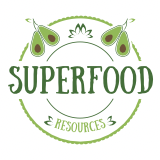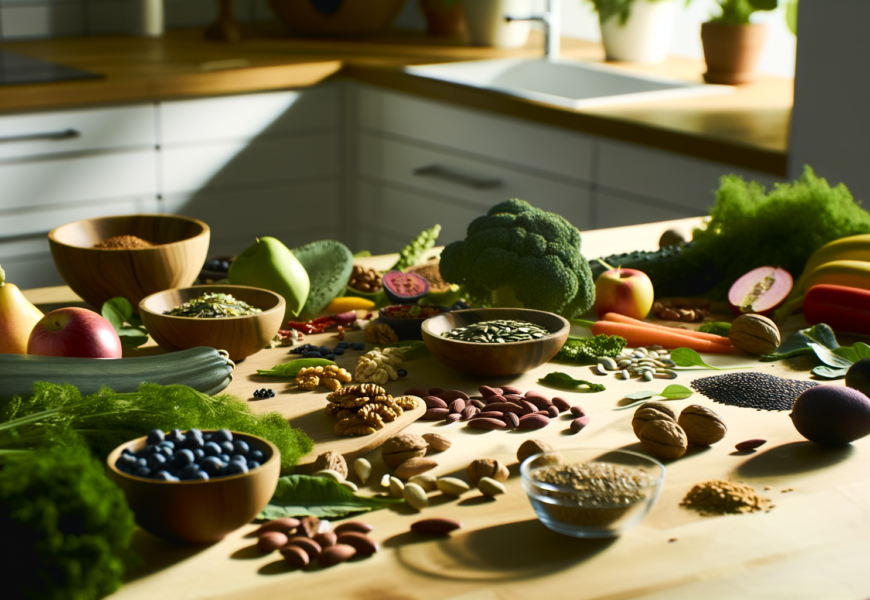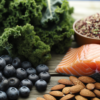Top Diet & Nutrition Tips for 2024: Stay Healthy and Fit
As we step into 2024, the importance of a well-balanced diet and adequate nutrition has never been clearer. With new trends emerging and a growing emphasis on holistic health, it's essential to stay informed about the best practices to nourish your body and mind. In this guide, we’ll explore the top diet and nutrition tips for 2024, providing you with practical advice and expert insights to help you stay on track with your health goals.
Understanding Nutritional Basics
To kick things off, let's dive into the basics of nutrition. Understanding macronutrients and micronutrients is fundamental for anyone looking to improve their diet.
The Importance of Macronutrients: Proteins, Carbohydrates, and Fats
Macronutrients are the cornerstone of a balanced diet. Proteins are essential for muscle repair and growth, carbohydrates are the body's primary energy source, and fats are crucial for various bodily functions, including hormone production and nutrient absorption. Striking the right balance of these nutrients can significantly impact overall health and well-being.
Essential Micronutrients: Vitamins and Minerals
While macronutrients are vital, don't overlook the role of micronutrients. Vitamins and minerals support a myriad of bodily functions, from boosting the immune system to ensuring proper brain function. Foods rich in these nutrients include fruits, vegetables, nuts, and seeds.
The Role of Hydration
Hydration is another critical aspect of nutrition that is often underestimated. Staying adequately hydrated helps with digestion, nutrient transport, and temperature regulation. Aim to drink at least eight glasses of water a day, and adjust based on your activity level and climate conditions.
Latest Diet Trends in 2024
The new year comes with its fair share of diet trends. Here are some that are likely to dominate 2024.
High-Protein, Low-Carb Diets
High-protein, low-carb diets continue to gain popularity, especially among fitness enthusiasts. These diets are known for their benefits in weight loss and muscle building but can be restrictive and may not suit everyone. Consult with a healthcare provider to see if it's right for you.
Plant-Based and Vegan Trends
The move towards plant-based and vegan diets is more than a trend; it's a lifestyle change that promotes sustainability and improved health. These diets can offer a plethora of nutrients and reduce the risk of chronic diseases. However, ensure you're getting enough protein, iron, and B12 by incorporating diverse food sources or supplements.
Intermittent Fasting: Pros and Cons
Intermittent fasting has been a buzzword for years, and it’s not going anywhere in 2024. This eating pattern can help with weight management and may have other health benefits. However, it’s not suitable for everyone, especially those with certain medical conditions or dietary requirements.
Crafting a Balanced Meal Plan
Creating a balanced meal plan is essential for maintaining a healthy diet. Here’s how to get started.
Designing Your Plate: Portion Control
Portion control is key to avoiding overeating and maintaining a healthy weight. A good rule of thumb is to fill half your plate with vegetables, a quarter with protein, and the remaining quarter with whole grains or healthy fats.
Integrating Seasonal and Local Foods
Consuming seasonal and local foods can improve nutritional intake and support local agriculture. Seasonal produce is often fresher and higher in nutrients, making it a win-win for your body and the community.
Meal Prepping Tips for Busy Schedules
Meal prepping can save time and ensure you stick to your dietary goals. Batch-cook meals, use versatile ingredients, and invest in quality storage containers. Planning your meals for the week can help you avoid the temptation of unhealthy fast food.
Practical Tips for Sustainable Eating Habits
Sustaining a healthy diet requires more than just knowing what to eat. It involves building habits that last.
Mindful Eating Practices
Mindful eating means paying full attention to the experience of eating and drinking. This practice helps you enjoy food more and recognize your body's hunger and fullness signals, reducing overeating and emotional eating.
Managing Cravings and Emotional Eating
Cravings and emotional eating are common challenges. Combat these by keeping healthy snacks on hand, staying hydrated, and finding alternative ways to cope with stress, such as exercise or meditation.
Importance of Consistency over Perfection
Remember, it's the small, consistent actions that lead to long-term success. Don’t get discouraged by occasional slip-ups; focus on making healthier choices most of the time.
Supplements and Superfoods
Supplements and superfoods can be valuable additions to your diet, but they’re not a substitute for a balanced diet.
When and How to Use Dietary Supplements
Supplements can fill nutritional gaps, but it's crucial to use them wisely. Multivitamins, omega-3s, and probiotics are popular choices, but always consult with a healthcare provider before starting any new supplement regimen.
Top Superfoods to Include in Your Diet
Superfoods are nutrient-rich foods that offer numerous health benefits. Some top picks include blueberries, kale, quinoa, and chia seeds. Incorporating these into your diet can enhance your nutrient intake and improve overall health.
Understanding Dietary Labels and Certifications
Reading and understanding dietary labels can help you make informed choices. Look for certifications like USDA Organic or Non-GMO Project Verified to ensure you're getting high-quality products.
Staying Active and Hydrated
Your diet works best when complemented by physical activity and proper hydration.
The Connection Between Diet and Physical Activity
Nutrition and physical activity go hand-in-hand. A balanced diet fuels your workouts, and exercise improves metabolism and overall health. Aim for a mix of cardiovascular, strength, and flexibility exercises.
Tips for Staying Adequately Hydrated
Staying hydrated is essential for physical and mental performance. Drink water throughout the day, and consider hydrating foods like cucumbers, oranges, and watermelon. Monitor your hydration levels through the color of your urine; it should be a light, pale yellow.
Combining Diet with an Exercise Routine for Better Results
Pairing a healthy diet with a regular exercise routine can yield incredible results. Consistency in both areas will help you achieve and maintain your health goals more effectively.
Monitoring and Adjusting Your Diet
Monitoring and adjusting your diet is a continuous process that ensures you’re meeting your health goals.
The Benefits of Keeping a Food Journal
A food journal can help you track what you eat and identify patterns related to hunger, eating triggers, and portions. This awareness can lead to healthier choices and better diet management.
Listening to Your Body’s Signals
Pay attention to your body's signals, such as hunger, cravings, and energy levels. Listening to your body can help you make better food choices and maintain a balanced diet.
Adjusting Your Diet According to Lifestyle Changes
Life is dynamic, and so should be your diet. Whether you're entering a new life stage, taking up a new activity, or facing health changes, adapting your diet to these changes is crucial for sustained well-being.
Maintaining a healthy diet and proper nutrition is a continuous journey that can significantly enhance your quality of life. By staying informed about the latest trends and understanding the fundamental principles of nutrition, you can make empowered choices that support your well-being. Remember, consistency is key, and small, sustainable changes can lead to lasting health benefits. Start integrating these tips into your daily routine today and take a proactive step towards a healthier you in 2024.
Feel free to drop your comments, share your tips, or ask any questions below. Here’s to a healthier, happier year ahead!









